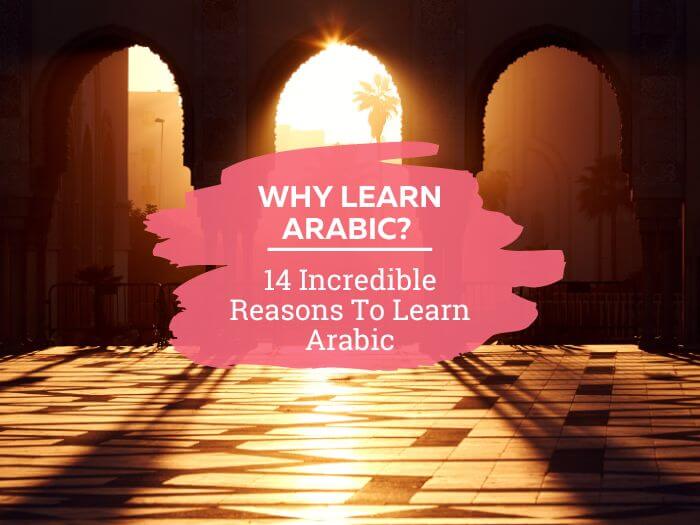Why learn Arabic? I asked myself the same thing before thinking about learning Arabic.
Let’s cut to the chase then. A few years ago when I was thinking about learning a new language, I found out that Arabic is one of the most important languages in the world.
That said, I quickly realized that it’s a challenging language, in fact it’s one of the hardest languages in the world. But don’t feel discouraged!
Over time, learning Arabic helped me expand my linguistic abilities, and taught me a lot of new things that are useful for my personal and professional life. And that’s even before getting to the fact that it’s a joy to learn!
So let’s find out then – why learn Arabic?
Pro Tip
By the way, if you’re thinking about learning Arabic, then I have some great news for you!
I have beginner course called Arabic Uncovered. It’s a course where you can rely on the power of story and the unique StoryLearning® approach to learn Arabic!
It’s fun, easy, and effective! Make sure to sign up here for the course if you’re interested!
If you prefer watching videos to reading, hit play on the video version of this post below. Otherwise, keep scrolling to discover the answer to the question: why learn Arabic?
1. Arabic Is Spoken All Over The World

Guess what? Arabic is spoken by millions of people all over the world. There are somewhere between 350-450 million Arabic speakers globally across more than 50 Arabic-speaking countries.
If you do the math (and if you don’t want to do the math, then let me do it for you!), then that means that it’s the 5th most spoken language in the world!
Of course, not everyone speaks the same kind of Arabic, because there are lots of Arabic dialects. One time, I was hanging out with a group of Arabic-speaking friends from different countries: Egypt, Iraq, and Morocco. They could barely understand each other!
Still, Arabic is the main official language in all of these and other countries in the Middle East and North Africa region.
I also have tons of friends who are part of the Arab diaspora who live in countries in Europe, the Americas, and Asia, who all speak Arabic as well.
Arabic is such an important language that it’s even one of the UN working languages.
At the same time, Arabic is also the official language for many other countries because of its role in Islam, which brings me to the next reason why you should learn Arabic.
2. Understand The History And Traditions Of Islam
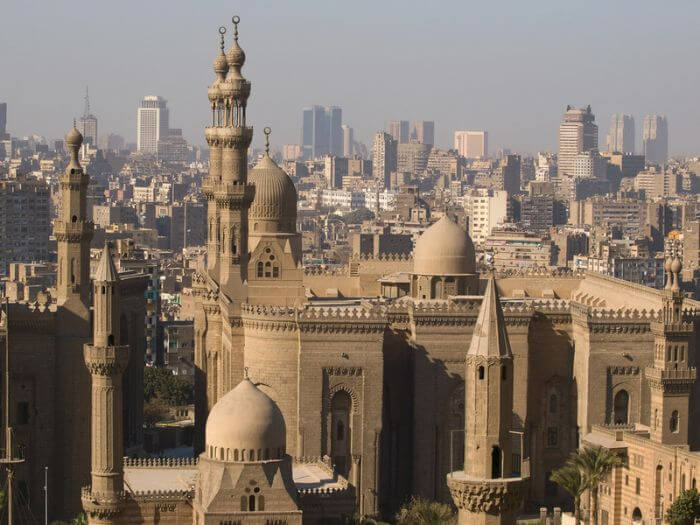
Did you know that Islam is one of the most important religions in the world? With close to 2 billion followers, more than a quarter of the world’s population identify as Muslim!
When I visited the Middle East for the first time, I went to Cairo in Egypt. There, I was constantly reminded of the major role Arabic plays in Islam when I heard verses in classical Arabic straight from the Qur’an being blared on loudspeakers, five times a day.
Many Muslims across the world, even if they are not from an Arabic-speaking country, have a strong foundation in Arabic to better understand and connect with the teachings of Islam.
If you’re Muslim, then learning Arabic can be a great way to connect with your religion. And even if you aren’t Muslim, then learning Arabic can help you better understand the religion and promote cross-cultural understanding.
3. Travelling In The Middle East And North Africa

It took some time for me to get around to visiting the Middle East and North Africa, but I wasn’t disappointed once I started.
After starting to learn Arabic, I visited Egypt to experience the city of Cairo and explore the amazing historical sites like the pyramids and the city of Luxor.
Later, I had the chance to visit other countries in the Middle East. In Jordan, I had a chance to trek through Petra and Wadi Rum. In Tunisia, I visited the ancient city of Carthage outside Tunis.
It was clear that there’s something to see or experience in the region for every type of traveller.
But the best part of travelling there, I found, was the hospitality. Everybody I encountered was more than welcoming.
One of my friends started travelling only after studying Modern Standard Arabic (MSA) and had no knowledge of any of the dialects (I learned Egyptian Arabic first).
But she found that even knowing some MSA went a long way for communicating with locals, reading signs, and deciphering menus.
If you do decide to travel to the Middle East, then knowing some Arabic beforehand can help you make your travel experience unforgettable.
4. Arabic Can Help In Learning The History Of The Middle East

As mentioned already, Arabic is most commonly spoken in the Middle East and North Africa region. But it’s also the main language for many other civilisations in the past.
All the history buffs I’ve spoken with have been quick to note Arabic’s hand in shaping history.
Since Arabic plays an important role in Islam, it’s no wonder that there are tons of historical records from civilisations like the Umayyad caliphate and the Ottoman empire in Arabic.
Because the region is one of the most historically consequential places on earth, learning Arabic will help you better connect with these histories and understand its hand in shaping the world we live in today.
5. Become A Better Mathematician And Scientist
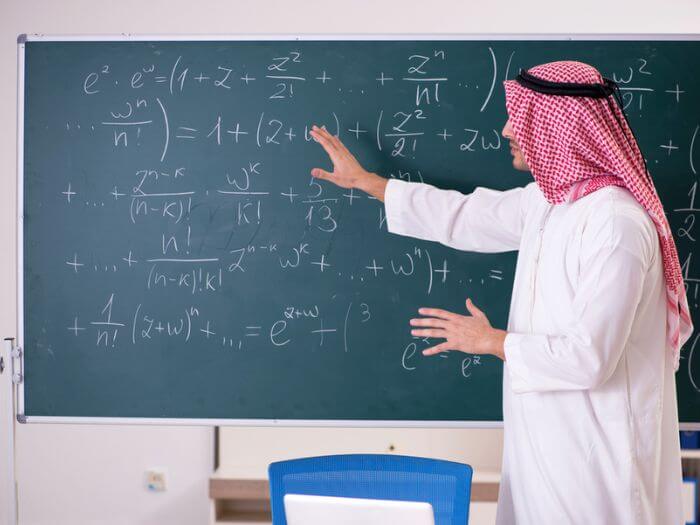
This reason is for all of the math and science geeks out there! A mate of mine who studied maths at uni told me that words like “algebra” and “algorithm” originally come from Arabic.
That’s because the Arabic language has played a vital role in the development of mathematics and various scientific fields that shape the way our world works today.
This friend also explained that the number system we use today are called Arabic numerals because of the role medieval Islamic civilisations have had in spreading their use around the world.
Learning Arabic and its connection with the history of mathematics and science might help you become a better mathematician or scientist. And even if it doesn’t, it’s sure to help you in becoming a better conversation starter at the dinner table!
6. Expose Yourself To Rich Arabic Literature And Arts
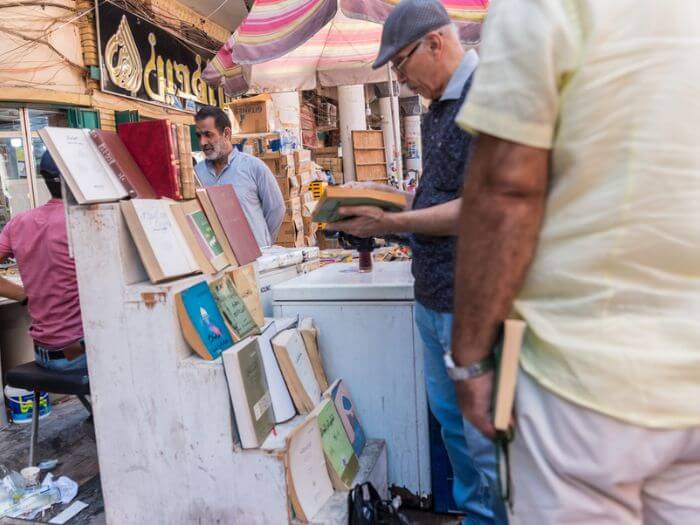
Learning Arabic can help you unlock the keys to a rich and diverse culture directly, without having to rely on translations.
With a better knowledge of Arabic, you can learn to better appreciate Arabic songs by legendary singers like Fairuz and Oum Kulsum.
Or you can expose yourself to the literature and poetry of influential writers and poets like Naguib Mahfouz, Mahmoud Darwish and Halil Cibran.
Perhaps over time, you can also attempt learning Arabic by reading short stories from compilations like “One Thousand and One Nights” (Alf Layla wa-Layla / أبف ليلة و ليلة). After all, learning languages through stories is one of the best methods for becoming fluent!
7. Arabic Cuisine Is Delicious!

If you’re a foodie then you’ll be pleased to know that the food from the Arabic-speaking world is nothing short of delicious. Full stop.
Obviously, there’s the Arabic foods that have become popular household names over the years like hummus (حمص), falafel (فلافل), and baklava (بقلاوة).
But every time I’ve gone to a new restaurant that features food from the region, I’ve always been delightfully surprised by the foods I sampled, like tajine (تجين), maqluba (مقلوبة), kebbeh (كبّة), and kushari (كشري).
And if you’re even more adventurous, then perhaps you can even try making these foods by following YouTube cooking channels in Arabic. Plus, it’ll help with the listening comprehension practice!
8. Arabic Is Linked To Many Other Languages
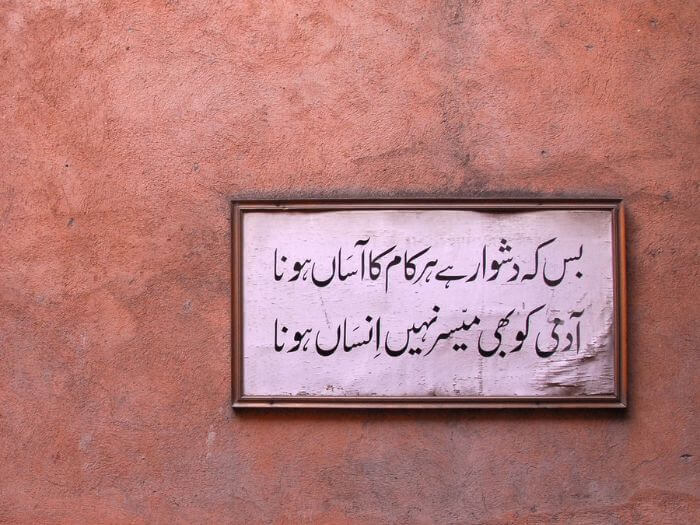
Because Arabic has had a large role in history, its traces are in many other languages, making it the perfect gateway for learning Turkish and more.
Languages like Persian, Kurdish, Urdu, and even Hindi also use lots of words that are originally from Arabic, while other languages like Hebrew share lots of the same grammar as Arabic.
For example, the word for “book” in Arabic is the same in Turkish and Persian: kitaab (كتاب), with just a few differences in pronunciation.
A lot of the vocabulary used in daily life in countries like Turkey and Iran come from Arabic roots. So you may find that it’s easy to transition into learning other languages in the Middle East and North Africa region.
9. Arabic Film And Television Are Fun To Watch

Who would have thought that being a couch potato and binge-watching TV series or a movie could be a great way of learning a new language!
I got lucky with Arabic when I started learning it because I stumbled on lots of great Arabic TV series and movies that I could watch for listening comprehension practice.
The best part of learning Arabic through TV series or movies is that there is constantly new material you can watch so you’ll never be bored.
You can always count on a new series in Arabic that you can watch during the month of Ramadan. Last Ramadan, I ended up binge-watching Seroh Al Bateaa (سره الباتع).
There are also lots of award-winning Arabic films that provide great social commentary about ongoing trends and topics in the Middle East.
So next weekend, sit back, relax, and enjoy the musalsal (series)/مسلسل!
10. Great Economic And Business Opportunities

Oil. Textiles. Olives. Tech services. Cotton. Guess what they all have in common? Well, they’re all produced in significant quantities across many Arabic-speaking countries!
Many Arabic-speaking countries in the Middle East and North Africa are major economic powerhouses, and some cities like Dubai, Doha, Riyadh, and Cairo are huge hubs for business.
In addition, with a wealth of natural resources, many Arabic-speaking countries have been attracting tons of foreign investment and have amazing economic prospects in the future for growth.
Knowing Arabic can help you get ahead in today’s economy and help you grow your business, which brings me to another related reason to learn Arabic.
11. Arabic Can Help You Get Ahead In Your Career

You’ve probably met tons of people who have been interested in learning more classic languages like French or Spanish, and rarely met people who’ve been interested in learning Arabic.
It’s precisely because Arabic is not a typical go-to language to learn that when you get to the point of applying for jobs, you’ll probably stand out from a crowd of job applicants and get ahead in your career!
Learning Arabic can help you advance your career in directions that might not otherwise be available.
There’s plenty of opportunities to use Arabic whether you land a job in a multinational corporation, pursue a career in research, decide to become an archaeologist, or more!
12. Boost Your Memory And Keep Your Brain In Shape
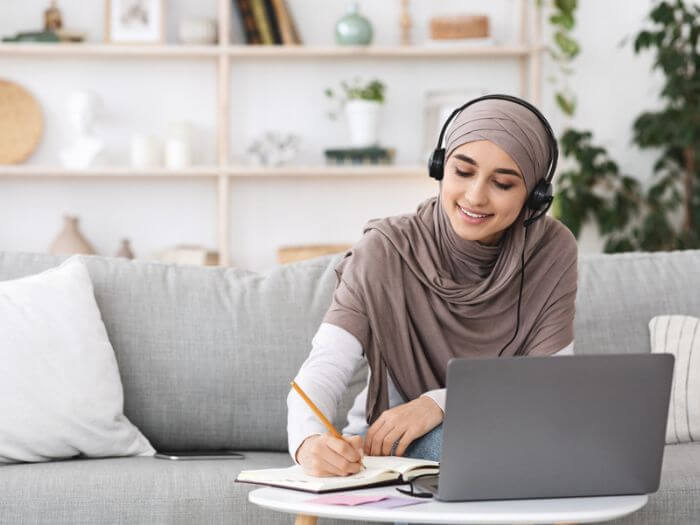
Beyond the benefits of learning Arabic itself, learning languages on its own can help you boost your memory and brain functions.
The brain is just another muscle in your body, which means that like other muscles you use for running on a treadmill or swimming laps, you need to use it regularly to keep it in tip-top shape.
That’s why learning a language can be a great way to keep your brain active, especially as you get older.
By learning a new language like Arabic, you’ll be helping your brain get better at learning and remembering new things. Just think of learning Arabic as the same as doing push-ups, only that they’re for your brain!
So every time you sift through some Arabic flash cards or do some grammar exercises, you’re boosting your brain’s memory and functions.
13. Learning A New Language Broadens Your Perspective Of The World

Learning Arabic doesn’t just take place in the classroom. Once I started learning Arabic, there were so many more things I was able to learn about life and the world we live in, and it shifted my worldview in many ways.
For instance, once I started practicing Arabic by watching news on channels like Al Jazeera and Al Arabiya, I realised that one news event might be understood in completely different ways.
Considering that the Middle East and North Africa is a region that has often been misunderstood by other parts of the world, learning Arabic can help you be a part of the solution to overcome misunderstandings and become a bridge between cultures.
14. Learning Arabic Is A Lot Of Fun

Last, but not least, learning Arabic is enjoyable and rewarding, even if it's challenging!
You could say that the difference between learning Arabic and learning a language like Spanish or French is comparable to the difference between doing a 5,000-piece and a 500-piece jigsaw puzzle.
While one might take a lot more time to finish than the other, they’re both still a lot of fun!
Here’s a quick preview of one of the fun things about learning Arabic.
One of the main features of Arabic is its root system, where every word can be traced to three or four root consonant letters that are all associated with one idea.
Over time, you learn to recognize patterns to words which embed meaning to these root consonants.
For example, the root d-r-s /د-ر-س carries the meaning “to study” or “learn”. You can form words using this root by inserting them into different patterns that embed different but related meanings.
So for instance, madrasa / مدرسة means “school”, while darrasa / درّس means “to teach”.
Pretty cool, right? Features like the root system makes Arabic a very logical language, and a lot of fun for people with a passion and interest in learning languages.
Why Learn Arabic? For Its Many Advantages!

So in summary, why learn Arabic? Perhaps the reason is simple – that it’s a fun and great way to expand your brainpower and your understanding of the world!
While there are tons of reasons why you should learn Arabic, including perhaps some of the reasons I’ve shared in this blog, you know yourself better than me.
So at the end of the day it’s up to you to find your own personal answer the question: why learn Arabic?
Of course, Arabic is no piece of cake and you’ll likely experience some hurdles while learning it. But don’t let that demotivate you!
You can learn Arabic and have fun while doing it by following the rules of Storylearning and reading short stories in Arabic.
And if you need some more support and want to learn Arabic through story, then you can join my beginner course, Arabic Uncovered.

Olly Richards
Creator of the StoryLearning® Method
Olly Richards is a renowned polyglot and language learning expert with over 15 years of experience teaching millions through his innovative StoryLearning® method. He is the creator of StoryLearning, one of the world's largest language learning blogs with 500,000+ monthly readers.
Olly has authored 30+ language learning books and courses, including the bestselling "Short Stories" series published by Teach Yourself.
When not developing new teaching methods, Richards practices what he preaches—he speaks 8 languages fluently and continues learning new ones through his own methodology.
